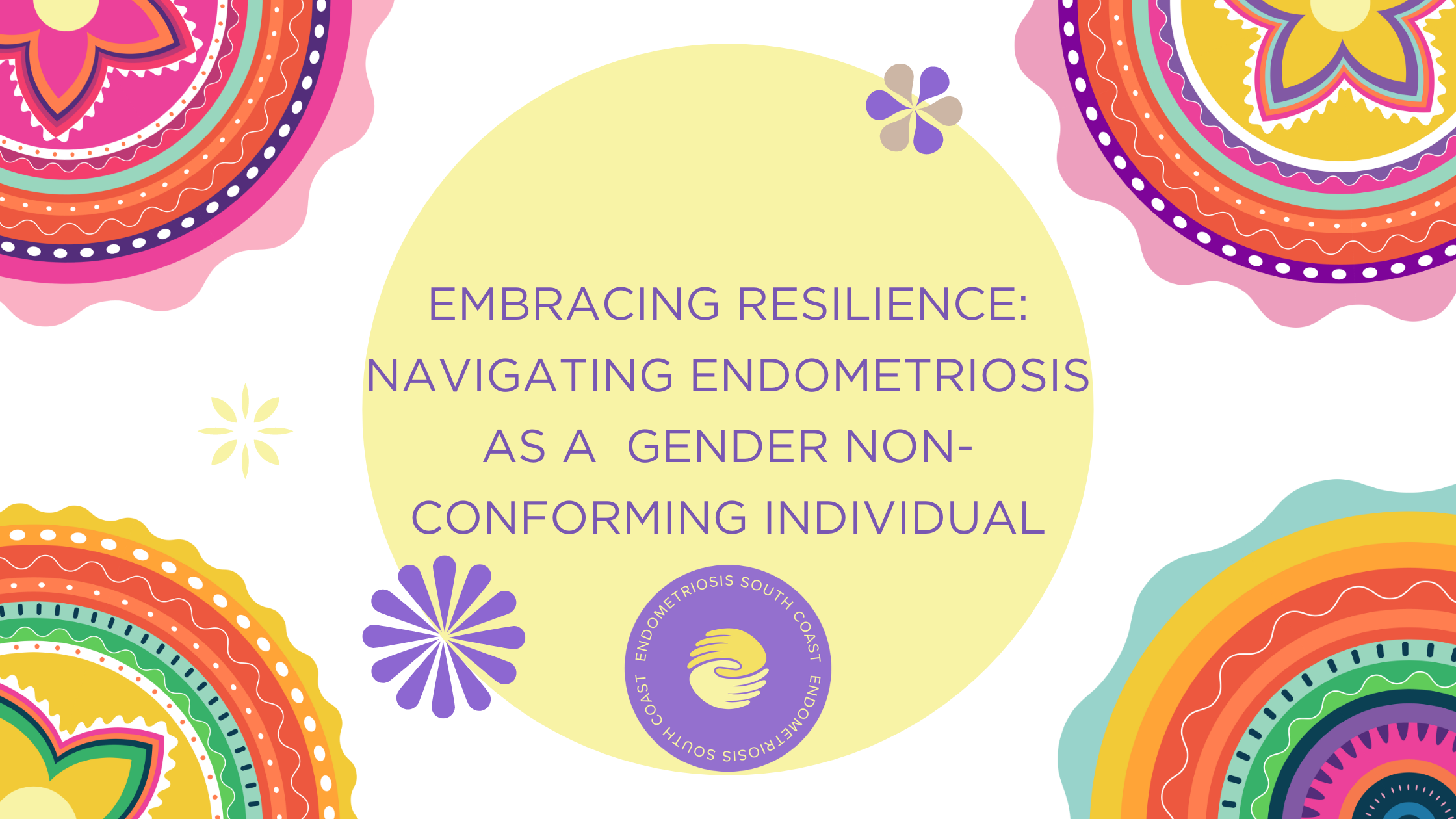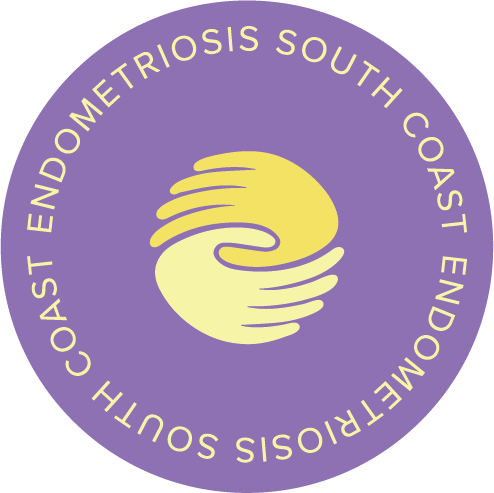June 27, 2024
Embracing Resilience: Navigating Endometriosis as a Gender Non-Conforming Individual

Endometriosis is a full body chronic condition , causing pain, inflammation, and other debilitating symptoms. Living with endometriosis can be incredibly challenging, but when you add the layer of being transgender, the experience can become even more complex.
For gender non-conforming (gnc) individuals, managing endometriosis while navigating gender identity often requires an extra level of resilience and strength. In this blog post, we will explore the unique intersection of endometriosis and gender identity, shedding light on the experiences, challenges, and triumphs of those who navigate both.
Understanding Endometriosis in Transgender Individuals
Endometriosis is a chronic multi-systemic condition (Horne & Missmer, 2022; Taylor et al., 2021) which affects the metabolism in the Liver and Adipose tissue and leads to systemic inflammation. This in turn alters gene expression in the brain and causes pain sensitisation and mood disorders. Meaning that endometriosis is a full-body condition that reaches far beyond just the pelvis (Taylor Hugh, 2021).
Endometriosis is commonly perceived and defined as a benign gynaecological disease that primarily affects women. However, framing endometriosis exclusively within the context of women perpetuates a myth and excludes individuals who do not identify as women but may still suffer from this debilitating condition (Lindeman, 2023).
Misconceptions about endometriosis as a women’s disease can result in inadequate healthcare for gender-diverse individuals. This includes delays in diagnosis, mismanagement of symptoms, and reluctance or refusal by healthcare providers to address their unique health needs (Eder and Roomaney, 2023). Exclusionary language and definitions contribute to the stigma and misunderstanding surrounding endometriosis in gender-diverse individuals (McKee, 2021). It can lead to feelings of erasure, isolation, and distress among those who are already marginalised in healthcare settings (Bauer et al., 2009).
For gnc individuals, managing endometriosis can be particularly challenging due to a variety of factors, including:
- Gender Dysphoria: Dealing with symptoms of endometriosis, such as menstrual pain, can exacerbate gender dysphoria for gnc individuals. The experience of having organs that may not align with one’s gender identity can be distressing and emotionally taxing.
- Healthcare Disparities: Gnc individuals often face barriers to accessing comprehensive healthcare, including gynaecological care. Finding healthcare providers who are knowledgeable and sensitive to gnc health needs can be a struggle, leading to delays in diagnosis and treatment of endometriosis.
- Hormone Therapy Considerations: Hormone therapy, a common aspect of gender transition, can impact the management of endometriosis. Balancing the effects of hormone therapy with the symptoms of endometriosis requires careful consideration and collaboration between healthcare providers.
Navigating Endometriosis and Gender Identity
Despite the challenges that come with managing endometriosis as a gnc individual, many people find strength, resilience, and empowerment in their journey. Here are some ways that individuals at the intersection of endometriosis and gnc identity navigate their experiences:
- Creating Support Networks: Connecting with other gnc individuals who also have endometriosis can provide a sense of community, understanding, and validation. Online support groups (such as Endometriosis South Coast) and advocacy organisations can be valuable resources for sharing experiences and coping strategies.
- Advocating for Inclusive Healthcare: Promoting awareness and education among healthcare providers about the unique needs of transgender individuals with endometriosis is essential. Advocating for gender-affirming and culturally competent care can help improve access to quality healthcare services.
- Self-Care and Wellness Practices: Practising self-care strategies, such as mindfulness, relaxation techniques, and gentle exercise, can help manage the physical and emotional symptoms of endometriosis. Taking time for self-care and prioritising mental health are crucial aspects of holistic well-being, you can join our Wellbeing Wednesday’s each month for a supportive peer group.
Embracing Resilience and Empowerment
Despite the challenges and complexities that come with being gnc and dealing with endometriosis, many individuals find strength in their resilience and empowerment. By sharing stories (https://endometriosissouthcoast.com/stories/#alex) , raising awareness, and advocating for inclusive healthcare, we can amplify the voices of transgender individuals navigating endometriosis and foster a more supportive and understanding community.
Remember, your experiences and identity are valid, and you are not alone in your journey. Let’s continue to support and uplift one another as we navigate the intersections of endometriosis and transgender identity.
Embracing Resilience Together
Managing endometriosis as a gnc individual requires perseverance, compassion, and understanding. By acknowledging the unique challenges faced by those at this intersection, we can work towards creating a more inclusive and supportive environment for all. Together, let’s embrace resilience, advocate for compassionate care, and empower each other in our journeys of healing and self-discovery.
If you are a gnc individual dealing with endometriosis, remember that your experiences and identities are valid and deserving of respect and care. Stay strong, stay resilient, and know that you are not alone in your journey.
Let’s continue to uplift, support, and empower one another as we navigate the complexities of living with endometriosis as transgender individuals. Together, we can build a community of resilience, acceptance, and understanding that honours our diverse experiences and identities.
Get in touch with us if you’re in need of some support or have a browse of our website for some useful resources.
Bauer, G.R. et al. (2009) “I don’t think this is theoretical; this is our lives”: How erasure impacts health care for transgender people, Journal of the Association of Nurses in AIDS Care, 20(5), pp.348-361.
Eder, C. and Roomaney, R. (2023) Transgender and Non-Binary People’s Perception of their Healthcare in Relation to Endometriosis. Informa UK Limited.
Horne, A.W. and Missmer, S.A. (2022) Pathophysiology, diagnosis, and management of endometriosis, Bmj, 379pp.379. doi:10.1136/bmj-2022-070750.
Tomassetti, C. et al. (2021) An international terminology for endometriosis, 2021, Human Reproduction Open, 2021(4), pp.hoab029. doi:10.1093/hropen/hoab029.


